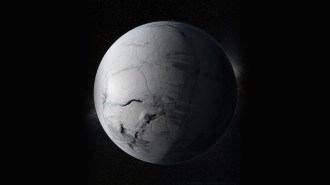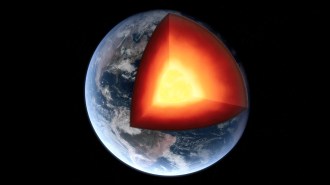Animals
Climate change could threaten monarch mass migration
Suitable milkweed habitat in Mexico may shift south, fracturing existing migration routes and possibly pushing some butterflies to stay put.
Every print subscription comes with full digital access
Suitable milkweed habitat in Mexico may shift south, fracturing existing migration routes and possibly pushing some butterflies to stay put.
We summarize the week's scientific breakthroughs every Thursday.

Sediments from Scotland hint that ocean-atmosphere interactions continued more than 600 million years ago despite widespread ice.

New plankton arrived just a few millennia — maybe even decades — after the Chicxulub asteroid, forcing a rethink of evolution's catastrophe response speed.

Hydrogen reserves in Earth’s core large enough to supply at least nine oceans may influence processes on the surface today.

A temperate tunneling species of dung beetle seems capable of adapting to climate change, but their tropical cousins may be less resilient.

Polar bears can struggle to adapt to climate change. Bears on Svalbard may be surviving on land prey and seals — but scientists warn it may not last.

Seismic tremors reveal a shallow fragment of an ancient tectonic plate beneath Northern California, helping explain damaging earthquakes near the surface.

An analysis of global climate data shows sustained warming even as El Niño faded.

Trees are known for absorbing CO2. But microbes in their bark also absorb other climate-active gases, methane, hydrogen, and carbon monoxide.

Longest lightning, the first AI-generated genomes and biggest black hole smashup were among this year’s top science superlatives.
Subscribers, enter your e-mail address for full access to the Science News archives and digital editions.
Not a subscriber?
Become one now.